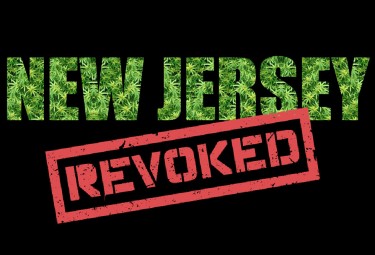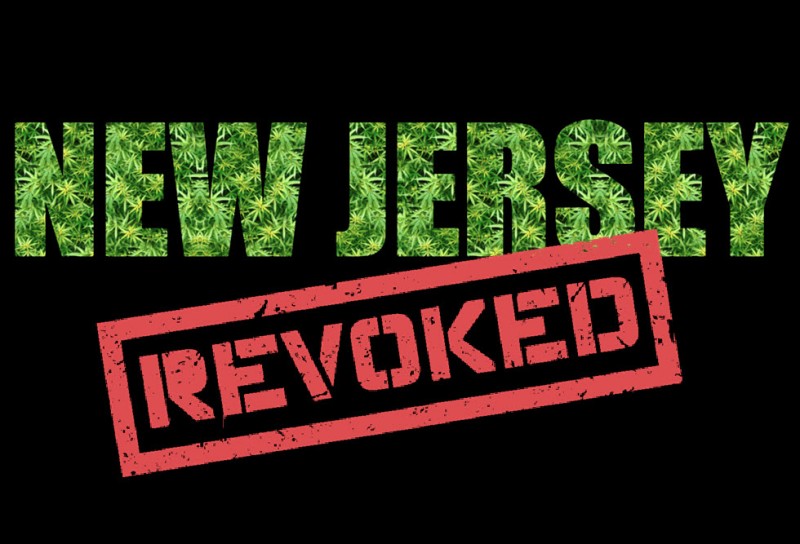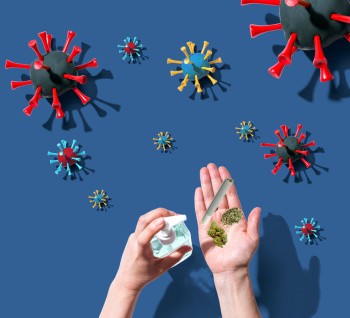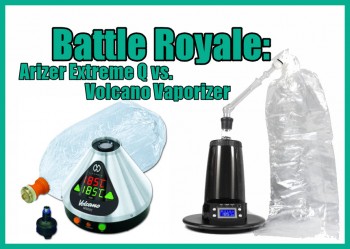
The New Jersey Cannabis Regulatory Commission (CRC) unanimously voted 5-0 to withdraw marijuana cultivation and manufacturing licenses from an operator in the state due to outstanding fees, as reported by MJBiz. Harmony Foundation, the operator that runs the sole adult-use dispensary in Hudson County, made a partial payment of $100,000 for its Class 5 retail license but failed to pay for its Class 1 cultivation and Class 2 manufacturing permits.
Despite the license revocation, Harmony is still allowed to sell recreational cannabis at its Secaucus store. However, the company must now source its supply from other growers within the state.
Shaya Brodchandel, the CEO of Harmony, expressed surprise at the decision and stated that if they had been informed of the possibility, they would have provided an explanation regarding their compliance with the February 15 agreement to pay the license fees. Brodchandel sees the abrupt revocation as a concerning wake-up call for New Jersey entrepreneurs seeking to operate within the regulations set by state authorities and promote the growth of the cannabis industry.
In a related development, the CRC recently reversed its decision to deny license renewals for Curaleaf Holdings, a multistate operator based in New York. The agency initially denied the license renewals, citing reasons such as Curaleaf's closure of a cultivation facility in Bellmawr, New Jersey, conflicts with unionization efforts, and lack of transparency with the state. However, the licenses were ultimately renewed in April.
Partial Payment Made for Retail License, but Cultivation and Manufacturing Permits Remain Unpaid
The New Jersey Cannabis Regulatory Commission (CRC) has revoked Harmony Foundation's marijuana cultivation and manufacturing licenses due to unpaid fees. While Harmony partially paid $100,000 toward its retail license, it failed to pay the necessary fees for its cultivation and manufacturing permits. As a result, the CRC unanimously voted 5-0 to withdraw these licenses.
Despite the license revocation, Harmony is still permitted to sell recreational cannabis at its Secaucus store. However, the company is now required to obtain its cannabis supply from other licensed growers within the state. This change in sourcing highlights the consequences of failing to meet financial obligations to regulatory authorities.
The decision to revoke the licenses serves as a reminder to cannabis operators in New Jersey about the importance of timely and complete payment of licensing fees. It underscores the strict compliance measures and financial responsibilities that businesses in the industry must adhere to in order to maintain their licenses and operate within the regulatory framework established by the CRC.
Harmony Foundation's failure to meet its financial commitments and subsequent license revocation should serve as a cautionary tale to other cannabis businesses in New Jersey. It emphasizes the potential consequences of neglecting to fulfill financial obligations associated with licensing requirements, showcasing the CRC's commitment to maintaining the integrity and fairness of the state's cannabis industry.
Conditional Sale Continues Despite License Revocation
Despite the revocation of Harmony Foundation's cultivation and manufacturing licenses, the company is still permitted to continue selling recreational cannabis at its Secaucus store. However, there is a significant change in the sourcing of their cannabis supply. Previously, Harmony Foundation was able to cultivate and manufacture its own products, but now it is required to purchase its supply from other licensed growers within the state.
This change introduces a shift in Harmony's operations and business model. The company, which operated as a vertically integrated cannabis business, must now rely on external suppliers for its inventory. This reliance on other growers within the state may impact Harmony's ability to maintain consistent product availability and potentially affect its profit margins.
The conditional sale allowance demonstrates that while the CRC has taken strict action in response to the unpaid fees, it also aims to minimize disruption to the consumers and the market. Allowing Harmony to continue selling cannabis ensures that customers can still access recreational products at their store in Secaucus. However, the requirement to source supply externally reflects the regulatory body's commitment to enforcing compliance and financial responsibility within the industry.
For Harmony Foundation, this conditional sale arrangement represents both an opportunity and a challenge. On the one hand, the company can maintain its presence in the market and serve its existing customer base. On the other hand, the reliance on external suppliers may require adjustments to its operations and supply chain management. The ability to procure quality products from other licensed growers will be crucial for Harmony to uphold its reputation and retain customer satisfaction.
Harmony Required to Source Cannabis Supply from Other Growers
Following the revocation of Harmony Foundation's cultivation and manufacturing licenses, the company is now required to procure its cannabis supply from other licensed growers within the state. Previously operating as a vertically integrated business, Harmony must now establish partnerships with external suppliers to ensure a consistent and reliable inventory for their Secaucus store.
The shift to external sourcing introduces operational adjustments and potential challenges for Harmony. They need to navigate differences in cultivation methods, strains, and product consistency among different growers. Selecting reliable partners who align with Harmony's quality standards and product vision will be crucial in maintaining customer satisfaction.
While Harmony retains the ability to sell recreational cannabis, the requirement to source from other growers emphasizes the significance of compliance and financial responsibility within the industry. It serves as a reminder that fulfilling financial obligations to regulatory authorities is essential for maintaining control over operations and avoiding disruptions in supply chains.
The transition to relying on external growers presents both challenges and opportunities for Harmony. They must adapt their processes, establish new relationships, and uphold quality standards to meet customer demand. Success will depend on their ability to forge strong partnerships and navigate the evolving landscape of the cannabis industry in New Jersey.
Bottom Line
The revocation of Harmony Foundation's marijuana cultivation and manufacturing licenses in New Jersey serves as a strong reminder of the criticality of financial responsibility and compliance within the cannabis industry. The decision highlights the repercussions of unpaid fees and emphasizes the need for businesses to fulfill their financial obligations to regulatory authorities. This case underscores the importance of maintaining clear communication and adhering to licensing requirements to ensure the sustainability and growth of the cannabis sector in the state.
NEW JERSEY LAUNCHES LEGAL CANNABIS, READ ON...
WHY DID HALF THE TOWNS IN NEW JERSEY OPT-OUT OF CANNABIS SALES?







